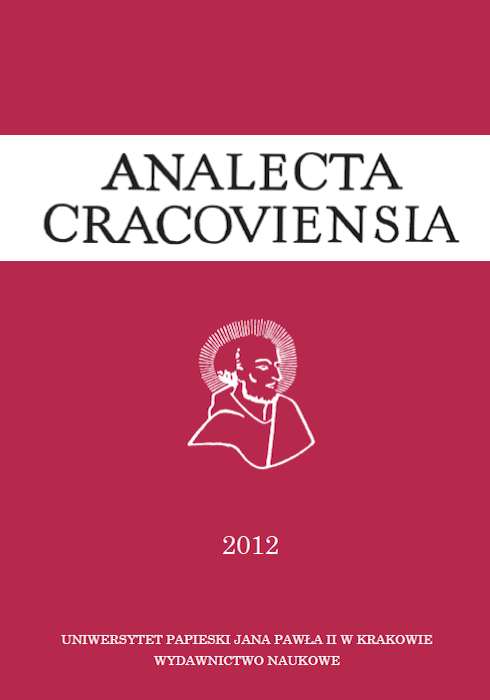Wpływ kryzysu Kościoła powszechnego na społeczeństwo polskie w pierwszej połowie XV wieku. Wybrane zagadnienia
DOI:
https://doi.org/10.15633/acr.17Słowa kluczowe:
Council of Basel, Council of Constance, Schism of BaselAbstrakt
The author, on the basis of chosen examples, discusses the influence of the crisis in the Universal Church in the 15th century on the conduct of the inhabitants of the Polish Kingdom. A particular emphasis was put on the analysis of the period of so called the Schism of Basel between 1439 and 1449, nevertheless, the period of Pisa and Constance Councils have not been omitted. The author does not only focus on the conduct and attitudes of secular and church elites but also tries to investigate how the religious condition in the Universal Church affected common subjects of Polish monarchs. The author uses examples from the life of townspeople and various monastic communities or religious orders. He extensively elaborates on pardons granted by councils, popes, cardinals and bishops. The author also emphasises the difficulties in interpreting some source documents. The documents dating from the time of the Council of Basel have been subjected to closest scrutiny. The issue so far has not been extensively discussed in subject literature, which motivated the author to try and get some insight into the problem. This is why in effect, only the most interesting aspects for the author have been reflected in the work. Undoubtedly they require further analysis and research especially including manuscript sources.
Pobrania
Opublikowane
Numer
Dział
Licencja
Prawa autorskie (c) 2012 Tomasz Graff

Praca jest udostępniana na licencji Creative Commons Attribution-NonCommercial-NoDerivatives 3.0 Unported License.
Obecnie autorzy publikujący w czasopiśmie udzielają jego wydawcy zgody o następującej treści:
- Autor zachowuje autorskie prawa majątkowe do utworu, a jednocześnie udziela wydawcy czasopisma zgody na jego pierwszą publikację w wersji drukowanej i wersji online na licencji Creative Commons Uznanie autorstwa 4.0 Międzynarodowe oraz zgody na wykonywanie opracowań, w tym przekładów.
- Autor ma możliwość udzielania zgody niewyłącznej na opublikowanie utworu w wersji, która ukazała się w czasopiśmie (np. zamieszczenia go w repozytorium instytucjonalnym lub opublikowania w książce), wraz z informacją o jego pierwszej publikacji w czasopiśmie.
- Autor może umieścić swój utwór online (np. w repozytorium instytucjonalnym lub na swojej stronie internetowej) jeszcze przed zgłoszeniem utworu do czasopisma.

